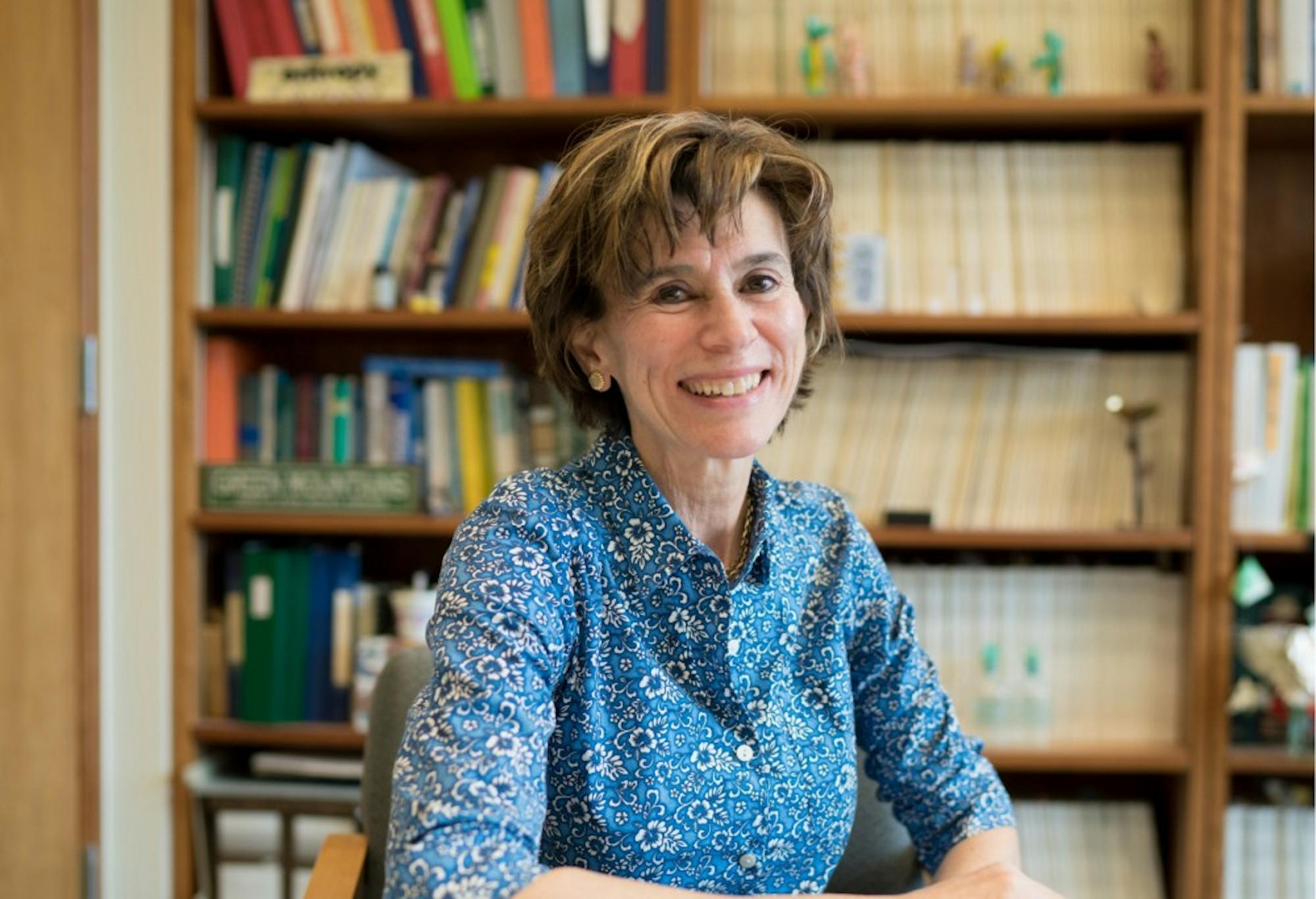Dartmouth chemistry professor Jane Lipson and film and media studies professor Jodie Mack will begin fellowships with the Radcliffe Institute for Advanced Study at Harvard University this coming September. Through the fellowship, Lipson and Mack will live among fellow recipients and gain access to a wide range of resources that supplement their individual research projects.
The fellowship offers its recipients the opportunity to spend the upcoming academic year in Cambridge, Massachusetts and creates a scholarly environment that invites multidisciplinary collaboration with peer scholars, Lipson and Mack said. With this year’s fellows, Dartmouth adds Lipson and Mack to a list of Radcliffe scholars with past and present ties with the College that includes geography professor Susanne Freidberg, 2013 artist-in-residence Luke Fowler and government professor Nancy Crowe.
In receiving this fellowship, Mack and Lipson are among the four percent of applicants selected for the program, Radcliffe Institute communications manager Karla Strobel wrote in an email. As the Institute accepts only 50 applicants each year, the fellowship is highly selective. Each applicant must submit a project proposal that scholars at the Institute peer review. The Radcliffe Fellowship chooses its recipients based on the quality of these potential projects and the anticipated outcomes, Strobel said.
In earning the fellowship, fellows receive the opportunity to explore projects that relate both directly and indirectly to their own fields of study, Lipson said. With the Radcliffe fellowship, Lipson plans to research phase separation through the fields of chemistry and biology.
“My idea was to design a project that used skills I’ve got, but applied to an area that I am totally ignorant of,” Lipson said. “That area’s biological.”
In order to increase her biological fluency, Lipson must immerse herself in an environment that allows for face-to-face interaction with experts in the field. She likened the Radcliffe fellowship to a language immersion program, integrating her into the field of biology to promote a scientific fluency crucial for advancing her research.
With the fellowship, Lipson will also have easy access to biological experts, professors and fellow resources in the Cambridge area. She said she hopes this collaboration with academic peers will create the dialogue necessary for academic insights.
“It’s that back-and-forth in person that can give you the ‘aha’ moment,” she said. “You need that flexibility to wander down the wrong path and have someone say ‘No, that’s not exactly right.’”
This direct access to institutions in the Cambridge area and the academics who reside there creates an environment of collaboration unlike traditional sabbaticals, Mack said. Each fellow also has the opportunity to receive undergraduate assistance and can employ university students as research assistants. This advantage is one of the many that prompted Mack to apply for the fellowship, she said.
“The fellowship itself will give me studio space and possible student help at Harvard,” Mack said.
These and other resources will push Mack further along in her project: an animated feature film she describes as a “musical travelogue.”
Titled “The Grand Bizarre”, this film will explore the interplay between patterns and textiles, particularly focusing on how they connect to technology and its development.
“[I’m piecing together] how the relationship of cross-cultural pollination factors into the relationship between a sacred, hand-made textile and a similar pattern appearing on a Forever 21 tank top or an iPhone case from Amazon,” Mack said.
To generate footage for her film, Mack said she has used her travels as a both a source of inspiration and a soundboard. In the past few years, she has visited a range of countries, including Morocco, Mexico, China, India and Greece. These countries will create the baseline for the musical’s soundtrack. Mack will write each song, but the music will consist of field recordings collected from these places. In doing so, Mack said she will transform the seemingly mundane sounds of daily life into a musical feature.
This attention to detail, however, makes it challenging to balance producing the film with the responsibilities of teaching. As such, Mack said the fellowship will give her ample time to focus on her job as a filmmaker and put her job as a professor on hiatus.
“I’m getting a reward to just sit and spend an academic year on this project without the distraction of teaching,” she said.
While the separation from daily responsibilities makes the fellowship unique, Lipson and Mack both agree that the fellowship’s multidisciplinary focus distinguishes it from other sabbaticals.
“We’ll each be presenting our work together throughout the year in a series of public and private lectures, screenings and critiques,” Mack said. “I’m really excited to cross pollinate. It’s not a film specific program or something I might normally participate in.”
The fellowship will ultimately foster growth in both the overarching field of research and in the individual lives of each fellow, Lipson said.




